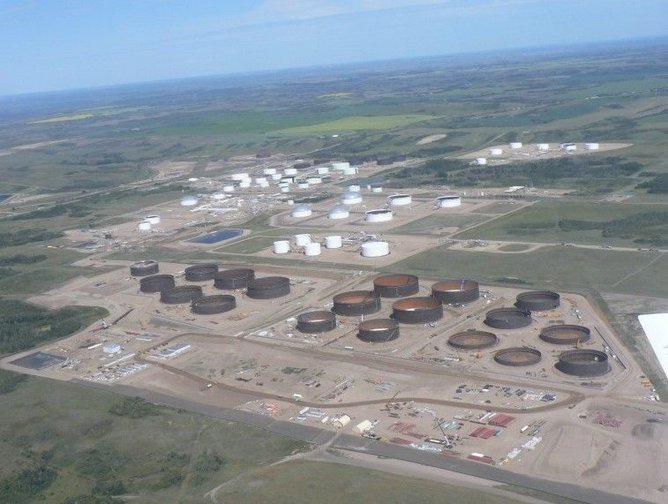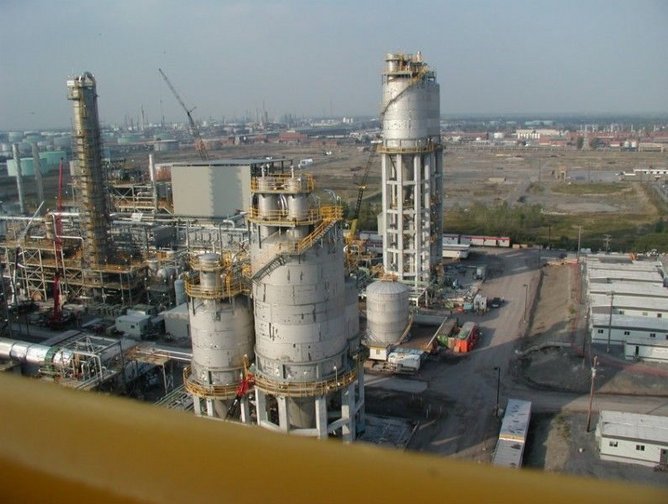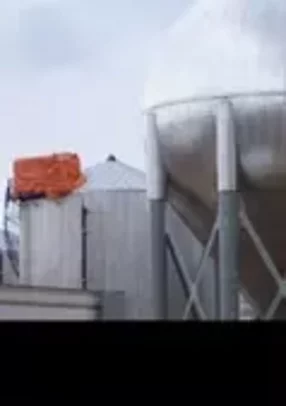Originally known as the Toronto Iron Works Company, TIW Steel Platework Inc. has grown since its inception in 1907 to evolve into a fully-integrated unit of mechanical design, manufacture, construction and service repair.
Part of the Canadian Erectors (Canerector) groups of companies, TIW is engaged in the fabrication, construction and distribution sectors of the steel industry. The nature of work that TIW accomplishes requires an extensive technical support staff which is fully conversant with the applicable building codes and procedures.
Founded by 3 partners in 1947 as Canadian Erectors Limited, the company began as a small boiler field repair business in Montreal, Canada. Over time, the company expanded its capabilities to include the engineering and fabrication of structural steel and field erected storage tanks.
In 1978, Stan Hawkins, one of the original shareholders, and his son Cecil, purchased the partners’ shares and began to establish a new framework for the business which harmonized their love of the company with good management principles.
““In 1983, TIW, originally known as Toronto Iron Works, was purchased by Canerector and has continued to operate as an autonomous subsidiary to the present day,” said John Raposo, General Sales Manager. “As a whole, Canadian Erectors owns and oversees something in the neighborhood of 60 divisions and we’re one of them,” continued Raposo.
An Experienced and Empowered Workforce
When it comes to the staff at TIW, the management system is viewed as traditional. Employees are given a sense of empowerment and the trust to exceed.
“What we generally like to do is empower our people to be self-sufficient – make their own decisions,” said Raposo. “We do that by paying them well, by giving them yearly bonuses and pretty decent benefits. Overall, if you’re an employee, we’re a company you’d like to work for and you can see that from our turnover. Our turnover is very low.”
The turnover rate at TIW is indeed very low, and when questioned what the primary reason believed to be for this outcome, Raposo said it was “because we share the wealth with everybody.
The senior management of TIW Steel Platework Inc. believes that a truly professional and successful company must have a good safety record, including the protection and preservation of the natural environment.
TIW endorses a safety program as the framework in which they execute their work in the pursuit of a safety performance that will further reduce their accident frequency.
“Our near-misses have dropped year over year,” said Jack Strohak, Regional Sales Manager at TIW. “Our safety record is practically second to none as far as the type of work that we do.”
“We have a full safety manual with written procedures for all the work operations that we perform and this is monitored and updated as needed and on a required basis,” Strohak added.
In order to achieve optimum safety records, TIW insists on the involvement and co-operation of employees and subcontractors at all levels. All employees and subcontractors are expected to be familiar with and work within the Safety Program, the Provincial Health and Safety Act, Regulations and Guidelines pertaining to their work.
What sets TIW employees apart – making them successful and valued? They’re all experienced.
“Working in the line of work that we do, experience and safety are paramount. This is necessary to be successful in what we do,” said Raposo.
“We pride ourselves in being big enough to handle the largest steel platework projects in Canada, and yet in the slow times, we still retain all of our people,” said Strohak. “We’re big enough to handle the heat, if you will, and when the cool time comes we’re not laying off our people.”
Operating at Optimum Efficiency
When it comes to the fabrication and construction of steel platework structures, technology has to be consistently updated to meet the latest demands.
“Overall, we’re consistently trying to get better and most of what we do is update our cutting equipment in the shop,” said Raposo. “This expedites production and it helps get steel out to the shop. We also always try to modernize our welding equipment because in the field that’s really where it’s most important for construction. A lot of what we do is welding.”
There is a plethora of equipment that has to be updated and maintained at TIW. From welding equipment to generators, each step in the construction process has its own unique set of equipment.
“For all of our equipment, in addition to the maintenance of it, we probably spend on average $200,000 to $500,000 per year,” said Raposo.
TIW is registered to the international quality management system standard ISO 9001-2008. TIW additionally has project management software in place that aids in the execution and accuracy of our projects.
“We work to the standards developed by the company – all our guys,” said Raposo. “We’re computerized, so everyone has a computer on their desk and they all work from spreadsheets developed by the company.”
TIW primarily operates from its 150,000 sq. ft. processing plant located in St. Catharines, Ontario. It is the company’s primary operations site, including its head office and fabrications facility. A project office is additionally located in Nisku, Alberta primarily housing those in project management.
“We’re a niche company. We as a company service any industry that requires steel plate-type structures and that could be food, chemical, oil, mining, pulp and paper – anyone that has a need for structures that are cylindrical in shape and need to be designed, fabricated and constructed,” said Raposo. “That’s our niche market, that’s where we excel. For us to be competitive and excel in that product, we have to have all those elements – such as the engineering and fabrication and construction all as part of the package. We consider ourselves a specialized company because everything we do is custom.”
Looking Ahead
“TIW has a good, healthy backlog,” said Raposo. “We are very busy for sure until the spring of 2015. Having been in this business as long as I have, with talking about this particular division, in regards to the future for TIW, the oil patch is very promising and should keep us employed for I can see four years from now. For the next four years we should be in a very good position.”



